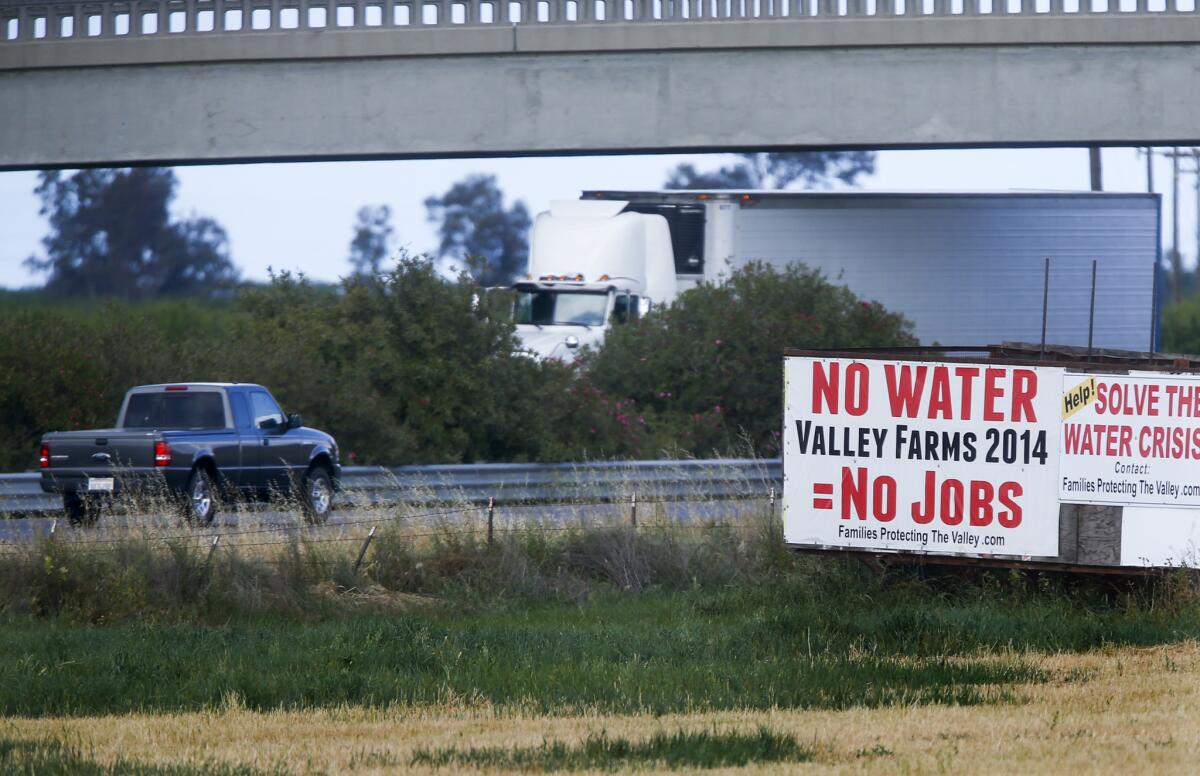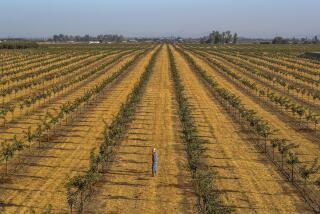There’s no drought of cash for California farmers

Signs along Highway 99 near Chowchilla connect water cutbacks prompted by the drought to agricultural employment.
California’s growers enjoyed near-record revenue for their crops last year, despite dropping their harvest by 640,000 acres in 2014, a new study suggests.
Agricultural employment soared to a record 417,000 jobs, largely because gains in the Central Coast, deserts and Sacramento River Valley overcame losses in the San Joaquin Valley, according to a report by the Pacific Institute, a nonprofit public policy organization based in Oakland.
Employment during the third quarter of the year, the peak season for agriculture, rose by 3,100 jobs from the same quarter in 2013, according to the report. Agricultural employment has increased by 9,000 jobs annually for each of the last four years, the report found.
The somewhat paradoxical near-record revenue and job rises at a time when harvested acreage dropped to a 15-year low can be explained by growers adopting more efficient use of water and converting to higher-value crops such as nuts, according to the study. Acreage dedicated to fruit and nuts has risen 24% since 2000, according to the study.
But productivity gains came at the expense of over-drafting the Central Valley’s groundwater as surface supplies were cut, said study coauthor Heather Cooley, water program director for the institute.
“There are some things that we can be doing more of, and things that we need to be doing less of,” Cooley said.
Many of the higher-value crops also require more labor, partially explaining the rise in employment, according to the report.
County-level data for 2014 are not available, but probably will show serious differences in both revenue and employment.
Models from UC Davis have projected that the drought will erase 10,000 jobs and siphon $1.8 billion from agriculture this year, which would cause $2.7 billion in wider damage to the state economy. With about $46 billion in revenue, agriculture is only about 2.4% of the state’s $1.9-trillion economy, according to UC Davis.
“Undoubtedly, even though we had high revenues, it would’ve been higher without the drought,” Cooley said. Agriculture revenues dropped by $480 million, or about 1.4% from record 2013 levels, the Pacific Institute study said. Even with the loss, 2014 revenues were well above those of non-drought years, the study said.
The study was based on analysis of data from the U.S. Department of Agriculture’s National Agricultural Statistics Survey and the state Employment Development Department.
Follow me on Twitter: @LATgeoffmohan
More to Read
Inside the business of entertainment
The Wide Shot brings you news, analysis and insights on everything from streaming wars to production — and what it all means for the future.
You may occasionally receive promotional content from the Los Angeles Times.











